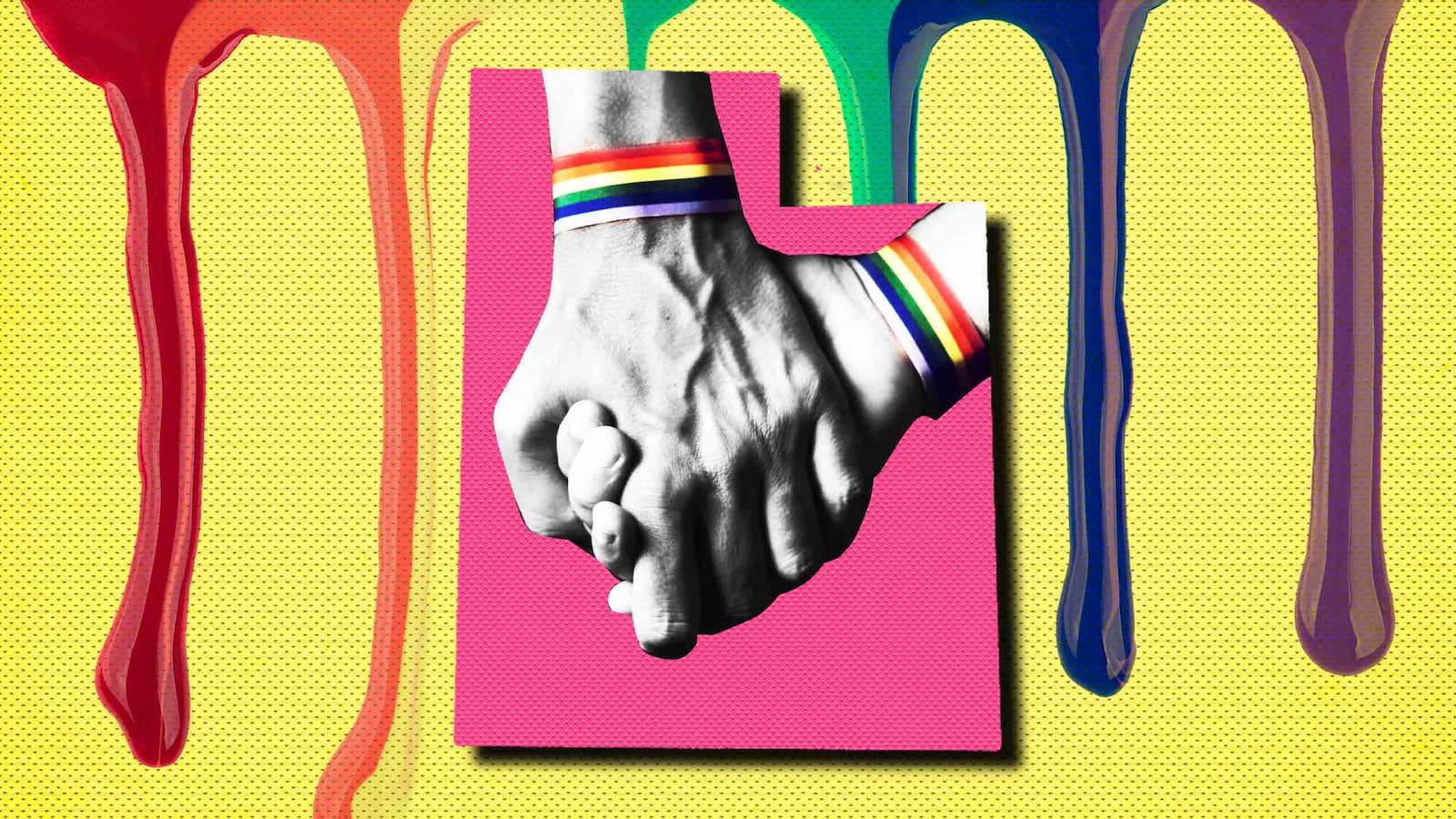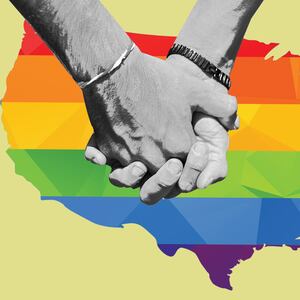A conversion therapy ban in Utah might sound unlikely to some given the state’s LGBT reputation—but that’s exactly what LGBT advocates are planning for next year, as the Salt Lake Tribune reported earlier this week.
They believe that it will pass because of Utah rather than in in spite of it.
“This is Utah, so of course there’s going to be a great chance,” Troy Williams, executive director of Equality Utah, cheerily told The Daily Beast of the bill’s prospects. “People always underestimate what we do here in the state. We have developed a really strong relationship with the legislature, with the governor’s office, and we feel very strongly that we have a lot of support.”
As the Tribune first reported, Equality Utah has drafted legislation that would ban the medically discredited practice of trying to change a minor’s sexual orientation or gender identity.
Williams told The Daily Beast that the effort is “still in that laying-the-groundwork phase” of speaking with legislators to secure a potential sponsor, and that more updates on the process will be forthcoming in early January.
So far, according to the Movement Advancement Project, 14 states and D.C. have banned conversion therapy for minors. Republican governors have signed several of those bills into law in states like New Hampshire, Maryland, and Nevada—proof of an emerging bipartisan consensus that conversion therapy is harmful and unethical.
Williams believes there’s a strong chance the Mormon church—formally known as the Church of Jesus Christ of Latter-day Saints—will not put obstacles in the path of a conversion therapy ban.
That would be a monumental step for the LDS church, which continues to be opposed to same-sex marriage and asks gay members to remain celibate in order to stay in good standing. (The LDS church did not immediately respond to The Daily Beast’s request for comment on this story.)
Despite those positions, LDS officials wrote in 2016 on the church's Mormon and Gay website that although “shifts in sexuality can and do occur for some people, it is unethical to focus professional treatment on an assumption that a change in sexual orientation will or must occur”—a clear reference to conversion therapy.
That statement marks a departure from previous positions and statements from LDS leaders on the topic.
From reports of electroshock aversion therapy being practiced at church-owned Brigham Young University in the 1970s to a 2007 pamphlet that claimed “many” church members have “overcome same-gender attraction,” the LDS Church’s approach to conversion therapy has gradually softened over the years, and only recently crossed a line into seeming condemnation.
But that history would only make a conversion therapy ban in 2019 more impactful, LGBT advocates say.
“Utah has such a terrible history of subjecting young people to conversion therapy,” Shannon Minter, legal director of the National Center for Lesbian Rights. “I think it’s been one of the worst states—perhaps the very worst—and to have the state of Utah recognize the harm that’s been caused, and to protect young people from conversion therapy, would be so transformative.”
A major factor in Utah’s evolution on this issue, says Williams, has been an epidemic of suicide among the state’s LGBT youth. As the Salt Lake Tribune reported this April, suicide is the leading cause of death for children ages 10 to 17 in the state, putting it well over the national average for that figure.
Imagine Dragons lead singer Dan Reynolds, as The Daily Beast previously reported, has been spearheading the effort—in part through his documentary Believer—to draw national attention to the role anti-LGBT bias plays in this epidemic. He has so far succeeded in prompting one of the LDS Church’s most positive statements on LGBT issues to date.
When Reynolds brought his LGBT-affirming LoveLoud Festival to Orem, Utah—a city near BYU—in August 2017, the LDS Church issued a generally supportive statement saying that they “applaud” the event’s goal to “bring people together to address teen safety and to express respect and love for all of God’s children.”
“We share common beliefs, among them the pricelessness of our youth and the value of families,” the statement continued.
LGBT advocates continue to voice criticisms of the LDS Church’s positions and policies. But through statements like that one—and over the course of many conversations with Utah lawmakers, many of whom are Mormon—Williams has seen a lot of “positive signs that we’re moving in the right direction” on this specific issue of conversion therapy.
Minter, too, has watched as a consensus emerges in Utah when it comes to protecting LGBT youth from conversion therapy—and the suicidal thoughts it can cause. He believes the strong LDS presence in the state actually makes it more likely that Utah will ban conversion therapy—as compared to, say, other comparably conservative American states that have yet to prohibit the practice.
“I think it has a very good chance of passing because I think that the state and the legislature and the LDS Church, which has so much political influence in that state, all recognize that they need to do more to protect LGBT young people, particularly from the risk of suicide,” Minter told The Daily Beast.
“The Church has now officially renounced and rejected conversion therapy—and recognized that it’s harmful and unethical—so I think there’s going to be a strong political will to make this happen. It’s possible.”
If Equality Utah succeeds in passing a conversion therapy ban next year, it will be far from the first LGBT victory they’ve scored.
In 2015, through a piece of legislation known as the “Utah compromise,” the state passed non-discrimination protections for LGBT people with some religious exemptions that the Mormon Church asked for as a condition of its support.
In 2017, following a lawsuit from Equality Utah and NCLR, Utah repealed a “no promo homo” law which had banned positive discussions of homosexuality in public schools, as The Daily Beast previously reported.
Still, there have been setbacks. In 2016, as The Daily Beast reported, the Utah state legislature declined to add enumerated categories like sexual orientation, gender identity, and religion to its hate crimes legislation after LDS leaders said it might upset the “balance” set by the 2015 non-discrimination law.
Republican State Senator Stephen Urquhart, an LDS member who sponsored both that bill and the “Utah compromise” bill, claimed in an interview that the church had “effectively snuffed out” any possibility of passing LGBT hate crime reform with that statement.
Urquhart resigned from the State Senate in 2016, which means that Equality Utah would have to secure new sponsorship for the conversion therapy ban. That process is already underway. (“We’re talking to several [potential sponsors] right now,” Williams told The Daily Beast.)
But ultimately, Williams says, LGBT leaders will pass a conversion therapy ban the same way they’ve gotten other bills through Utah: by talking to legislators that might disagree with them about a dozen other issues about one they can all agree on.
“Our success has come from sitting down down with [them] and finding common ground, finding the values that we all share,” he told The Daily Beast. “It’s incredibly challenging work, especially in this hyper-polarized political climate that we’re in.”
When it passes, he believes it will mark the beginning of the end of a challenging and lengthy chapter for LGBT Utahans.
“Our community is in deep need of healing from the pain and harm,” he told The Daily Beast, “and I think this legislation is one step forward in that healing process.”






